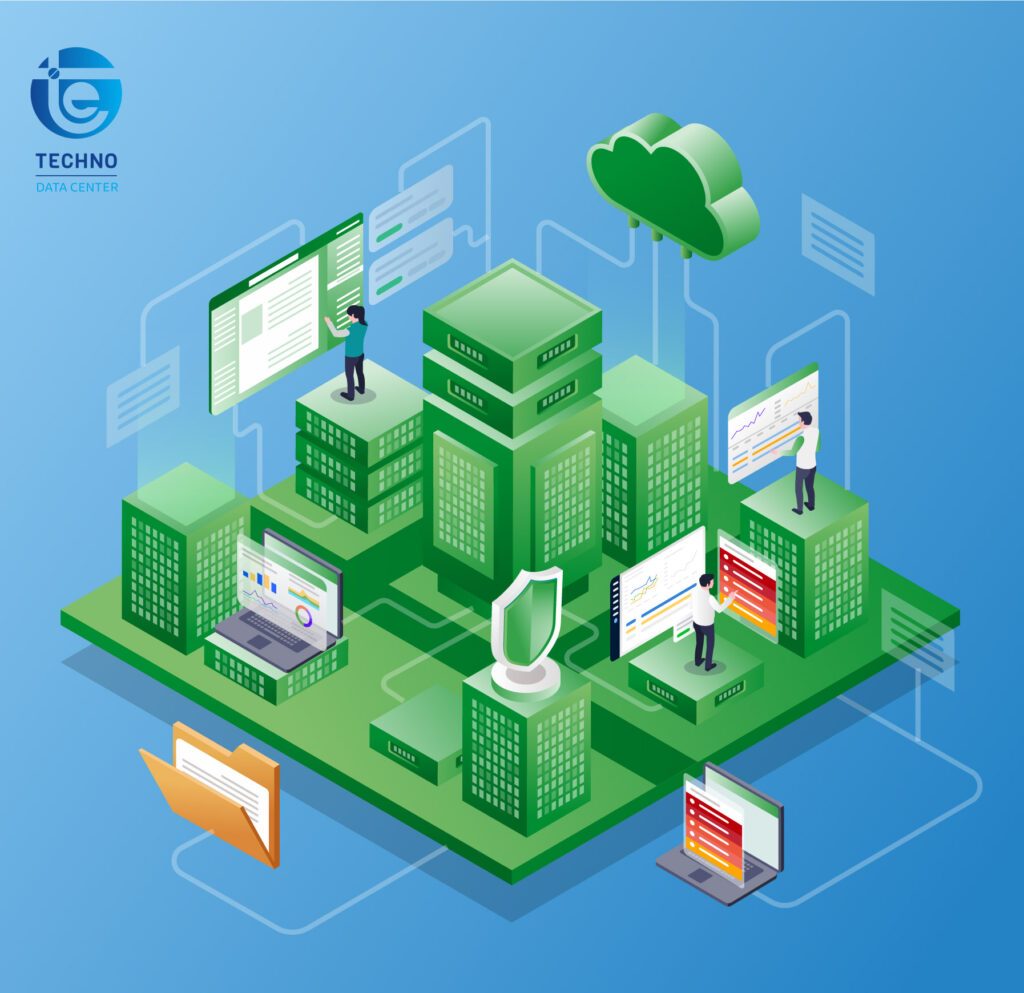The electric power sector is the largest source of global energy-related carbon dioxide (CO2) emissions and is still highly dependent upon fossil fuels in many countries. Given their significant electricity use, data center operators have come under scrutiny for their potential contributions to climate change and, in particular, for their chosen electric power providers and electricity generation sources. As demand for data center services rises in the future, scrutiny regarding the climate change impacts of data centers will likely continue.

To estimate the total CO2 emissions associated with global data center electricity use, it is first necessary to have data at the country or regional level on data center power use, alongside information on the local electricity generating sources used to provide that power. While a few large data center operators such as Google, Facebook, Amazon, and Microsoft publish some information on their data center locations and electric power sources, the vast majority still need to. Therefore, it is presently impossible to develop credible estimates of the total CO2 emissions of the global data center industry in light of such massive data gaps.
However, many data center operators are pursuing renewable electricity as part of corporate sustainability initiatives and climate commitments, alongside long-standing energy efficiency initiatives to manage ongoing power requirements. These companies are demonstrating that renewable power can be a viable option for the data center industry, paving the way for other data center operators to consider renewables as a climate change mitigation strategy.
When considering renewable power sources, data centers generally face three key challenges.
- Many data center locations may not have direct access to renewable electricity via local grids, either because local renewable resources are limited or because local grids still need to add renewable generation capacity.
- Even in areas with adequate renewable resources, most data centers do not have sufficient land or rooftop area for on-site self-generation, given the high-power requirements of the typical data center.
- Due to the intermittent nature of some renewable power sources (mainly solar and wind power), data centers must at least partially rely on local grids for a reliable power source or turn to expensive on-site forms of energy storage to avoid power interruptions.
Therefore, some significant data center operators that have adopted renewable power have entered into purchase power agreements (PPAs), which provide off-site renewable energy to partially or wholly offset on-site power drawn from the local grid. Operators like
- Google has utilised PPAs to achieve a milestone of purchasing 100% renewable energy to match its global data center’s annual electricity consumption, making it the world’s largest corporate buyer of renewables.
- Facebook has also committed to providing all of its data centers with 100% renewable energy, working with local utility partners so that their funded renewable power projects feed energy into the same grids that supply power to their data centers. To date, Facebook’s investments have resulted in over 1,000MW of wind and solar capacity additions to the US power grid.
- The global facilities of #Apple (including data centers, retail stores, offices, etc.) have been powered by 100% renewable energy since 2018, with a total of 1.4GW in renewable energy projects across 11 countries.
- AWS exceeded 50% renewable energy usage in 2018 and has committed to 100% renewable energy, with 13 announced projects expected to generate more than 2.9TWh renewable energy annually.
- Microsoft has committed to being carbon negative by 2030 and, by 2050, to remove all the carbon it has emitted since its founding in 1975. In 2019, 50% of the power used by Microsoft’s data centers had already come from renewable energy, and this percentage is expected to rise to more than 70% by 2023.
The efforts of these large data center operators have made the Information and Communication Technology (ICT) industry one of the world’s leaders in corporate renewable energy procurement and renewable energy project investments.
Techno Electric and Engineering has been a part of the renewable energy space for over a decade now. Techno Chennai Data center will be a carbon-neutral data center powered by 100% captive wind power, saving 170 Thousand tonnes of CO2 annually. Using water cooled solution, we will save 75% more water than conventional methods, which will help us save 65 million litres of water annually. To reduce the use of fossil fuel-powered DG sets, we will be installing BESS (Battery Energy Storage Systems) for additional backup time. We have dedicated more than 25% of the area as green space for immediate ecological benefits such as reduction in the urban heat island effect, cleaner air, and reduced noise pollution.
Despite the impressive efforts of these large data center operators, there is still a long road ahead for the majority of the world’s data center to break away from reliance on fossil fuel-based electricity.
